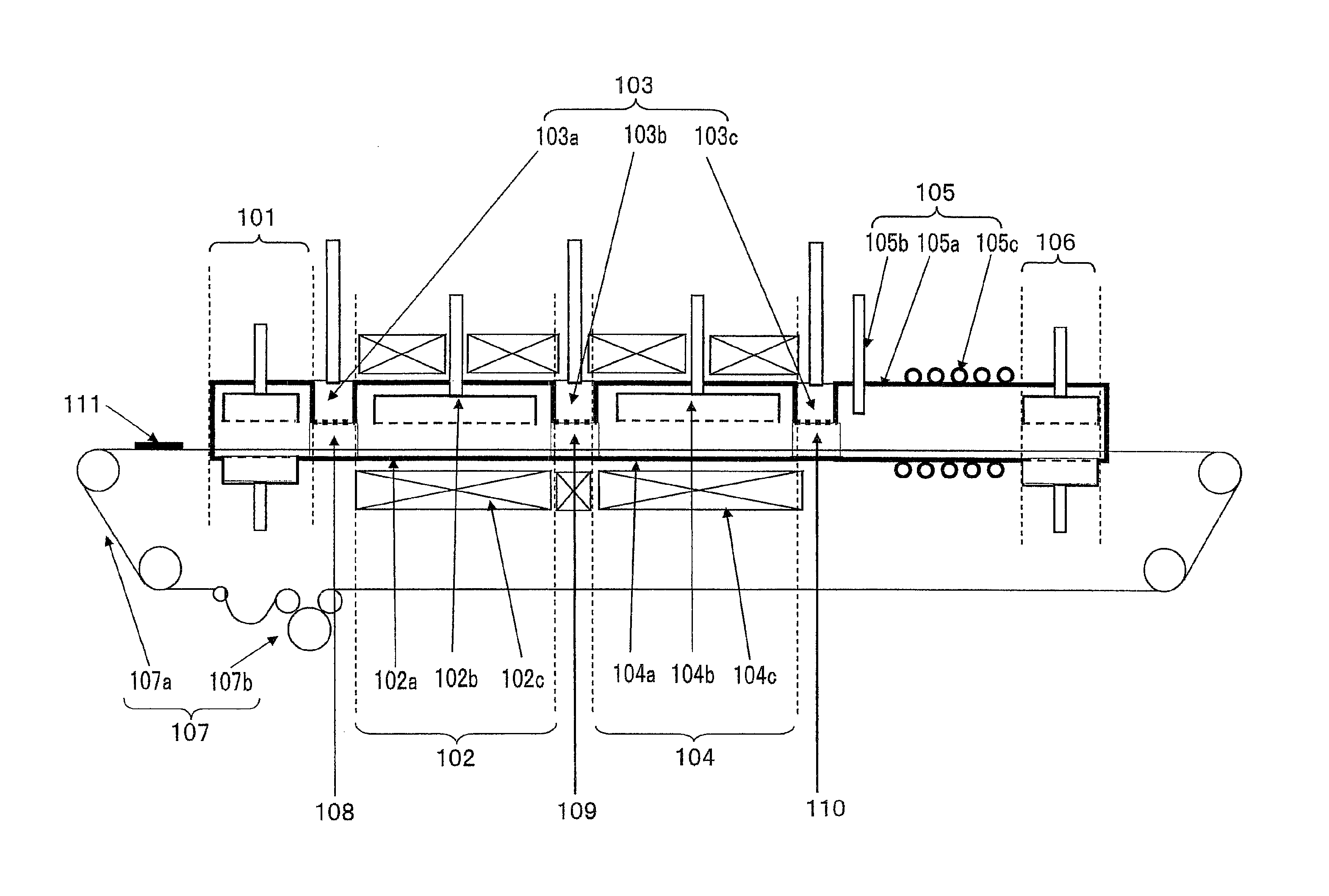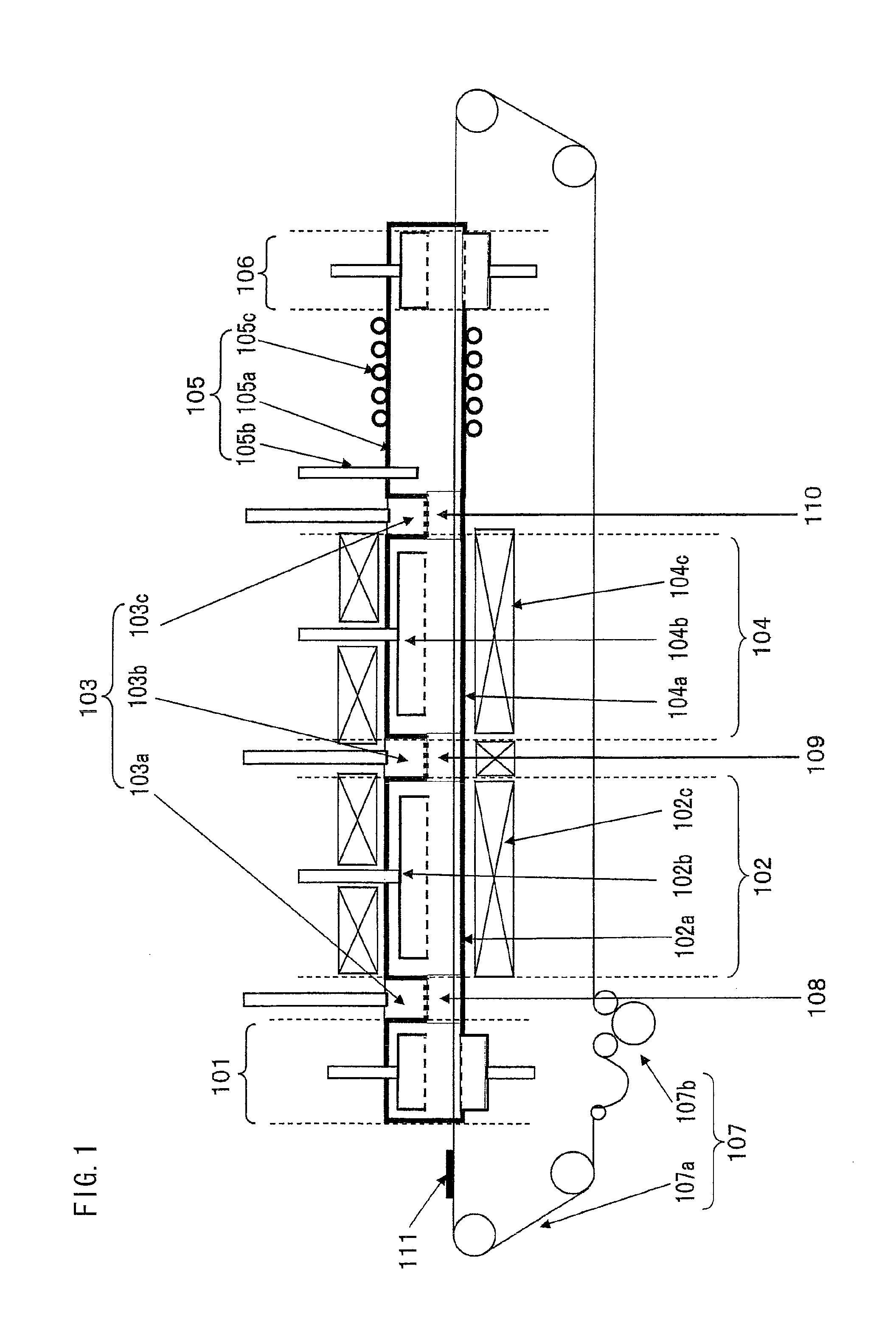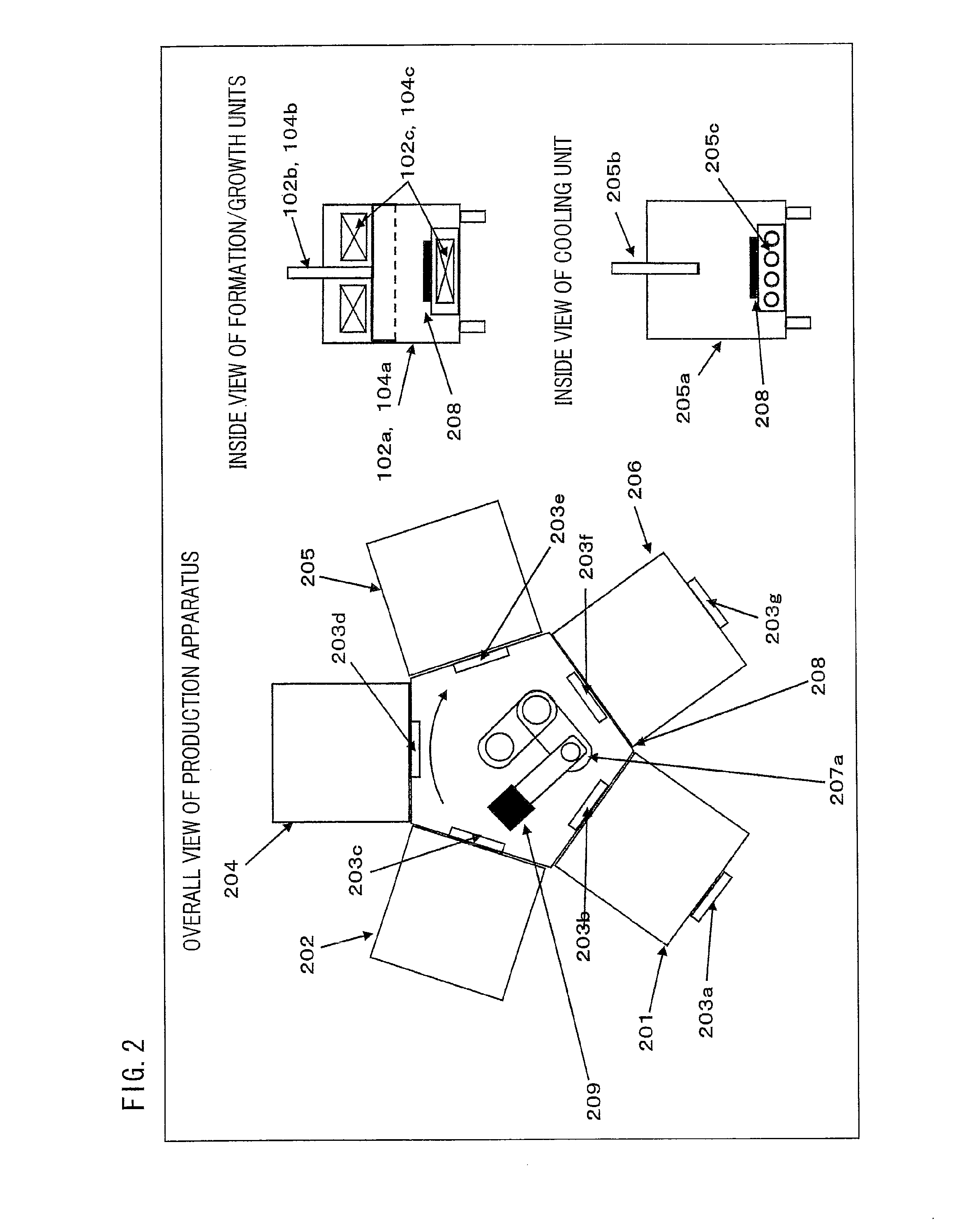Apparatus and method for producing aligned carbon-nanotube aggregates
a technology of carbon nanotubes and aggregates, applied in the direction of aligned nanotubes, chemistry apparatus and processes, coatings, etc., can solve the problems of deterioration in the quality of aligned cnt aggregates, cnts cannot grow efficiently, and catalysts are easily deactivated, so as to prevent the adhesion of carbon contaminants to the inner wall of the formation furnace, the effect of reducing production volum
- Summary
- Abstract
- Description
- Claims
- Application Information
AI Technical Summary
Benefits of technology
Problems solved by technology
Method used
Image
Examples
example 1
[0157]A specific example is given below to describe in detail an apparatus according to the present invention for producing an aligned CNT aggregate.
[0158]FIG. 1 shows a production apparatus of the present example. The production apparatus was constituted by an inlet purge section 101, a formation unit 102, means 103 to prevent gas mixing, a growth unit 104, a cooling unit 105, an outlet purge section 106, a transfer unit 107, and connecting sections 108 to 110. The respective furnaces and injections sections of the formation / growth units, the exhaust sections of the means to prevent gas mixing, the mesh belt, and the connecting sections were made of SUS 310 plated with aluminum.
[0159]The conditions for production of a catalyst substrate are described below. The substrate used was a 90 mm×90 mm Fe—NI—Cr alloy YEF 426 (Ni 42%, Cr 6%; manufactured by Hitachi Metals, Ltd.) with a thickness of 0.3 mm. The surface roughness was measured using a laser microscope, and it was found that the...
example 2
[0188]A specific example is given below to describe in detail an apparatus according to the present invention for producing an aligned CNT aggregate.
[0189]FIG. 2 shows a production apparatus of the present example. The production apparatus was constituted by an inlet purge section 201, a formation unit 202, gate valves 203a to 203g, a growth unit 204, a cooling unit 205, an outlet purge section 206, a transfer unit 207, and a connecting section 208. The respective furnaces and injections sections of the formation / growth units, the robot arm, and the connecting section were made of SUS 310 plated with aluminum.
[0190]The conditions for production of a catalyst substrate are described below. The substrate used was a 90 mm×90 mm Fe—NI—Cr alloy YEF 426 (Ni 42%, Cr 6%; manufactured by Hitachi Metals, Ltd.) with a thickness of 0.3 mm. The surface roughness was measured using a laser microscope, and it was found that the arithmetic average roughness was Ra≈2.1 μm. Alumina films with a thick...
PUM
| Property | Measurement | Unit |
|---|---|---|
| temperature | aaaaa | aaaaa |
| specific surface area | aaaaa | aaaaa |
| weight density | aaaaa | aaaaa |
Abstract
Description
Claims
Application Information
 Login to View More
Login to View More - R&D
- Intellectual Property
- Life Sciences
- Materials
- Tech Scout
- Unparalleled Data Quality
- Higher Quality Content
- 60% Fewer Hallucinations
Browse by: Latest US Patents, China's latest patents, Technical Efficacy Thesaurus, Application Domain, Technology Topic, Popular Technical Reports.
© 2025 PatSnap. All rights reserved.Legal|Privacy policy|Modern Slavery Act Transparency Statement|Sitemap|About US| Contact US: help@patsnap.com



